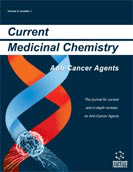Abstract
The unmet need for improved multiple myeloma (MM) therapy has stimulated clinical development of monoclonal antibodies (mAbs) targeting either MM cells or cells of the bone marrow (BM) microenvironment. In contrast to small-molecule inhibitors, therapeutic mAbs present the potential to specifically target tumor cells and directly induce an immune response to lyse tumor cells. Unique immuneeffector mechanisms are only triggered by therapeutic mAbs but not by small molecule targeting agents. Although therapeutic murine mAbs or chimeric mAbs can cause immunogenicity, the advancement of genetic recombination for humanizing rodent mAbs has allowed large-scale production and designation of mAbs with better affinities, efficient selection, decreasing immunogenicity, and improved effector functions. These advancements of antibody engineering technologies has largely overcome the critical obstacle of antibody immunogenicity and enabled the development and subsequent Food and Drug Administration (FDA) approval of therapeutic Abs for cancer and other diseases.
Keywords: Rituximab, tocilizumab, elotuzumab, HuLuc63, daratumumab, anti-HM1.24 mAb, mapatumumab, milatuzumab, CNTO 328, denosumab, BHQ880, ACE-011, atacicept, bevacizumab.






















